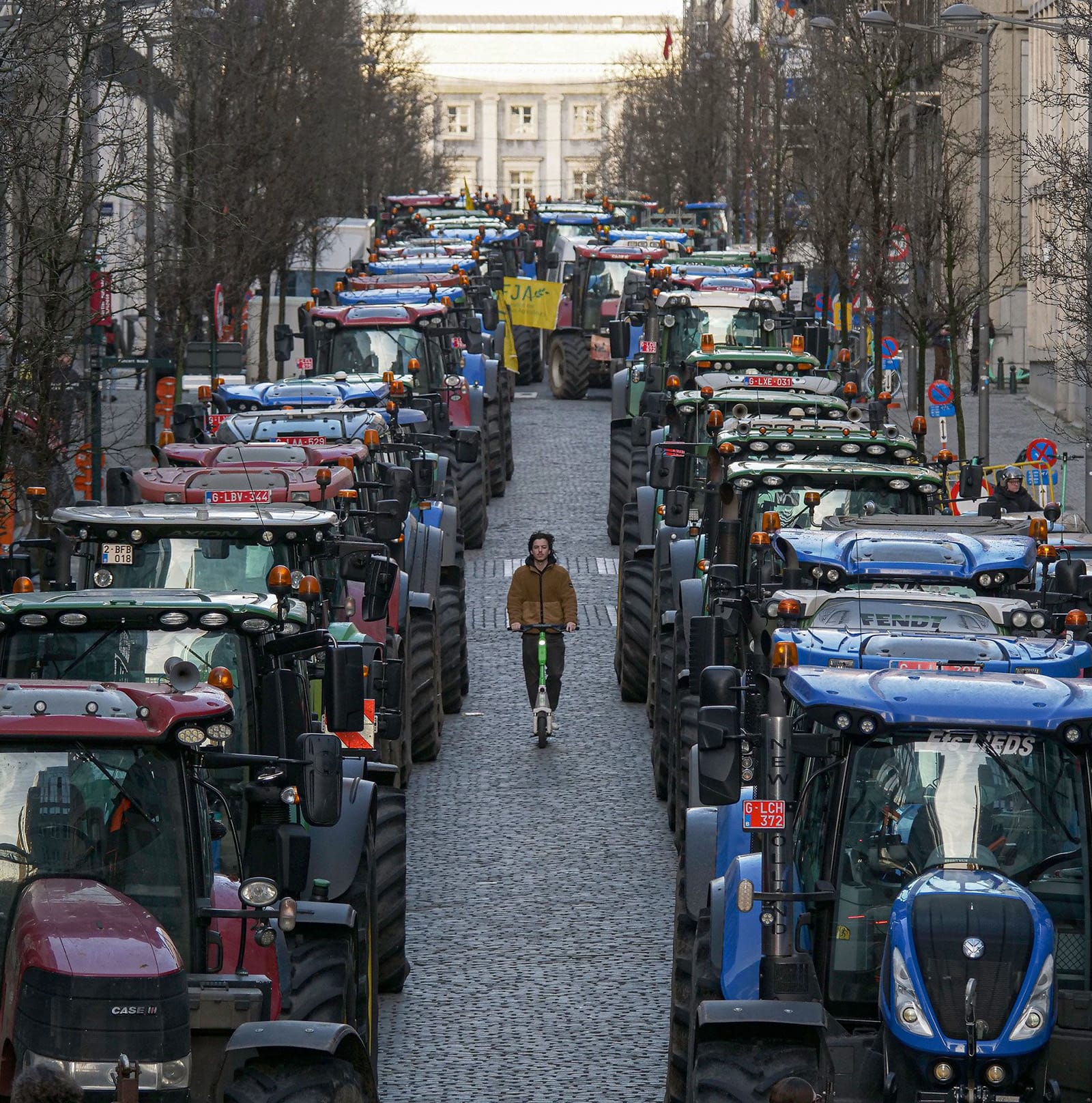More than 100 tractors rumbled past the iconic Houses of Parliament in London as farmers voiced their frustration over what they perceive as inadequate support for UK food production. Led by organisations like Save British Farming and Fairness for Farmers of Kent, convoys of tractors with blaring horns snaked their way through the bustling streets of central London, ultimately converging at Westminster on a Monday evening.
At the heart of the protest were concerns about the impact of cheap food imports and what farmers deemed as unsupportive government policies on the integrity of UK food security. Despite government assertions that farming is a priority in British trade, protesters waved Union flags and brandished placards with messages like 'Save British farming' and 'No farming, no food, no future'. Among the demonstrators was 21-year-old Ben Stickland, a third-generation farmer from West Sussex, who expressed his fears for the future of farming and the industry's viability amidst mounting challenges.

The tractor rally in London occurred amid a backdrop of simmering discontent among farmers across Europe, with demonstrations and blockades occurring in countries like Greece, Germany, Portugal, Poland, and France, primarily in response to European Union regulations and the influx of cheap imports. In Wales, thousands of farmers united in opposition to new farm subsidy plans introduced by the government.
Colin Rayner, a farmer with 2,000 acres of arable land spanning east Berkshire and south Buckinghamshire, highlighted the dire straits facing many in the agricultural sector. Rayner lamented the financial hardship endured by farmers over the past five years, describing a scenario where low yields, dismal prices, soaring input costs, and burdensome regulations were pushing many to the brink. He criticised the government's agricultural subsidy scheme, arguing that its environmental focus was undermining domestic food production while incentivising the cultivation of non-food crops.

In Rayner's view, the government's priorities were askew, as it allocated more funding for growing wildflowers than supporting food production—a situation he deemed as "insanity" given the longstanding tradition of farming in the UK. The rally underscored the deep-seated concerns within the farming community and the urgent need for policy changes to safeguard the future of British agriculture.
Amid mounting concerns over the future of British farming, voices from within the agricultural community are sounding the alarm, warning of the potential consequences of government policies and international trade agreements on the nation's food security.
Farmers like those expressing their views in England are increasingly apprehensive about the trajectory of agricultural policy, particularly the impact of the Environmental Land Management (ELM) farm payments scheme and perceived deficiencies in trade agreements and import controls. They argue that these factors, coupled with misleading food labelling practices, are eroding the viability of farming businesses and jeopardising the country's ability to meet its own food needs.

Campaigners, such as Liz Webster, founder of Save British Farming, emphasise the urgency of addressing these challenges, especially against the backdrop of the climate emergency, geopolitical tensions like the conflict in Ukraine, and the realities of Brexit. They advocate for a radical shift in policy direction, stressing the importance of maintaining high food standards, supporting local producers, and safeguarding British food sovereignty.
In response to these concerns, government officials have sought to reassure farmers of their commitment to bolstering the UK's food security. Prime Minister Rishi Sunak and farming minister Mark Spencer have pledged government support for the agricultural sector, promising to prioritise food production in trade negotiations, uphold food standards, and create new export opportunities. Additionally, measures have been announced to limit the conversion of agricultural land for non-food production purposes, with the Sustainable Farming Incentive (SFI) payment scheme restricting such activities to 25% of farmers' land.
The government asserts that it remains dedicated to supporting domestic food production, pledging to monitor food security levels annually and maintain the farming budget. Efforts are also underway to address concerns about fairness in the food supply chain and enhance food labelling regulations through consultations and policy reviews.
As the debate over the future of British farming intensifies, the outcomes of these policy initiatives and the government's ability to strike a balance between environmental sustainability and food security will be closely scrutinised by farmers, campaigners, and the public alike.



Member discussion: